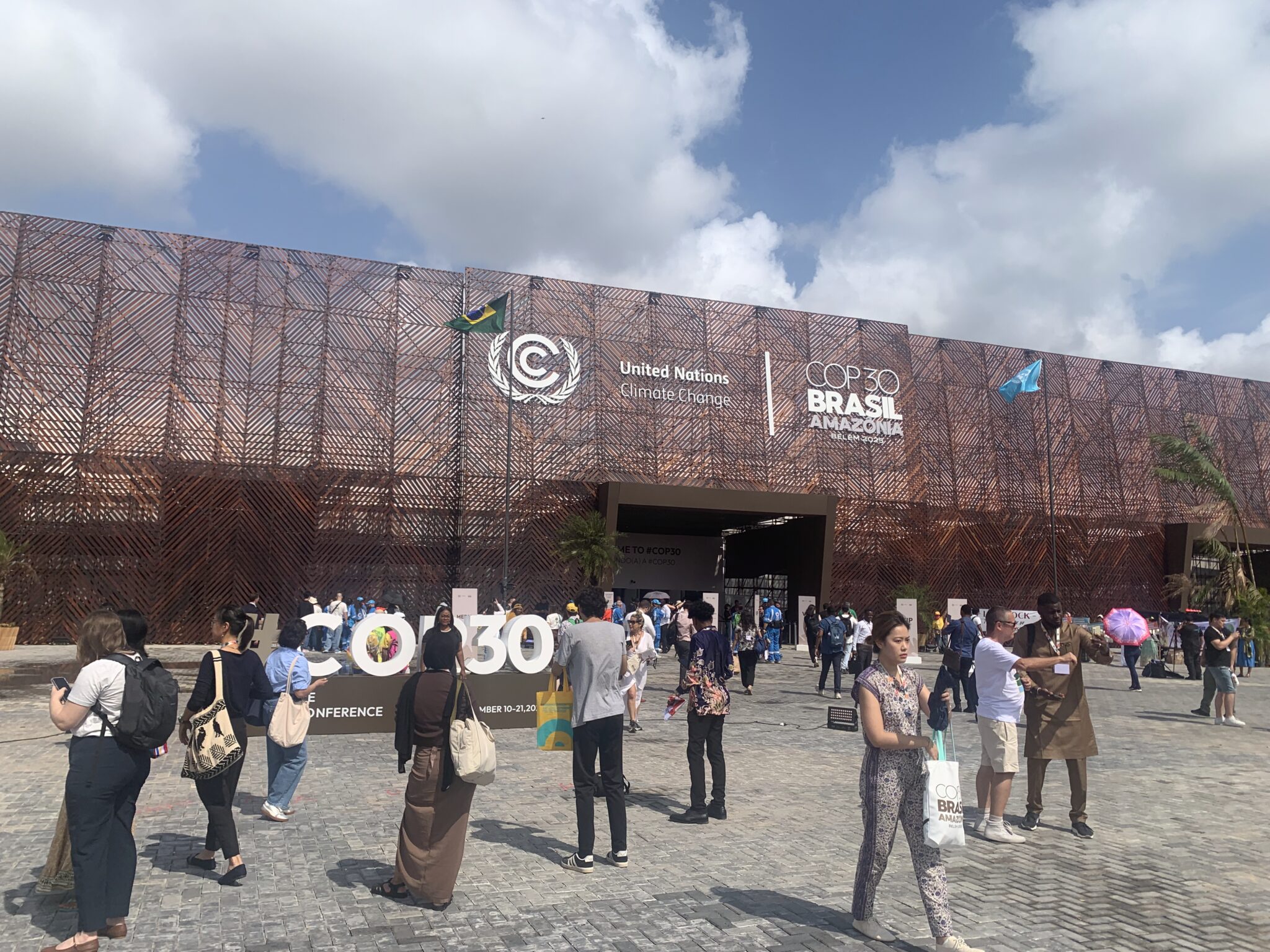COP30, in Belem Brazil, is well underway and we at EDC have been closely following on the ground and at home. As we pass the crucial midpoint of these negotiations, discussions are gaining momentum around the path to phasing out fossil fuels and ensuring just transitions for workers and communities.
In the first week, the COP Presidency led a series of consultations to diffuse tension around some of the most challenging issues, such as trade and climate finance, and build momentum towards more ambitious outcomes.
Canada’s Minister of Environment and Climate Change, Julie Dabrusin, was in attendance last week – making just one announcement – that Canada would join the Global Initiative for Information Integrity and Climate Change, alongside twelve other countries. The initiative will help countries and climate communicators combat the rise of climate mis- and disinformation campaigns, including those that try to cast doubt on climate solutions. Disinformation about climate solutions is on the rise and is delaying their implementation.
Unfortunately Canada hasn’t been as helpful on the critical issues at the centre of the negotiations – trying to kick the can down the road on key issues like the fossil fuels phaseout and supporting the weakest option on the table for facilitating a just transition.
As we speed into the final days of COP – here’s a snapshot of what’s happening on the ground for this year’s issues:
“Transitioning Away from Fossil Fuels” (TAFF): The TAFF language was agreed upon in Dubai, and was the first time the words “fossil fuels” made it into the final negotiated outcome text. Now it’s time to take it beyond high-level recognition into action. There are a few different proposals being discussed, but over 80 country representatives have spoken favourably about roadmaps for transitioning away from fossil fuels, something Brazilian President Lula has been championing. Colombia, who like Canada has substantial fossil fuel reserves, has also put forward a declaration with support from 17 nations so far to build political momentum for a plan to phase out fossil fuels.
The Just Transition Package: Substantial momentum was built over the first week for a “Belem Action Mechanism”, pleasantly known as the BAM! On Friday the G77+China introduced text to bring a just transition package into the political negotiations this week, and in the days following the vast majority of national representatives have spoken in favour of it. Unfortunately Canada has not yet lent its vocal support, which is one of the reasons it was awarded the “Fossil of the Day” on Tuesday November 19th. An uncovetted and renowned prize given out by Climate Action Network International to those parties who are doing the most to obstruct negotiations or block positive outcomes.
Increasing Ambition: It’s time for countries to revise and strengthen their climate targets, the Nationally Determined Contributions (NDCs). But meeting more ambitious targets is only possible with fair financing mechanisms. At the moment the negotiation text, which must be agreed on by all nations at the end of the conference, is changing daily. The outcome hinges on the political dance unfolding right now.
Climate Finance: This is the linchpin across multiple issues, like the adaptation fund and support for increasing ambition. This year, there is a lot of emphasis on the quality of finance. Meaning that funds and agreements should prioritize public finance through accountable multilateral institutions, rather than private investment or financial agreements that would trap the most impacted countries in a choice between crushing debt and survival.





